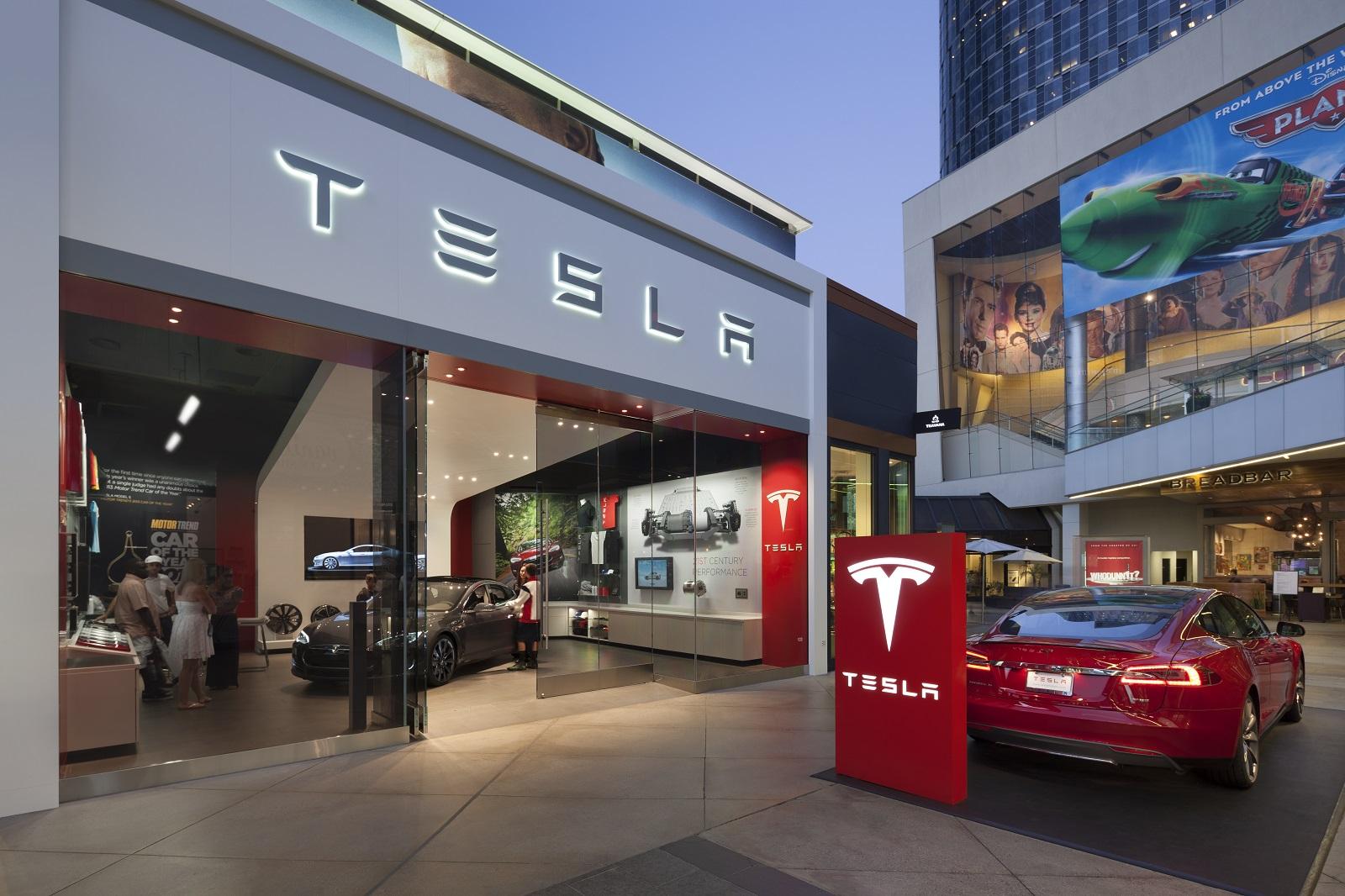
The second quarter of 2023 has been the quarter of supercharging for the world's leading automaker, Tesla, Inc. (TSLA). Notably, a significant number of companies chose to adopt NACS, the charging standard developed by TSLA a decade ago, propelling its prominence in the electric vehicle industry.
Further enhancing its charging network in 2024 will serve a dual purpose: expediting the transition from combustion vehicles to Electric Vehicles (EVs) in the market and fostering accelerated growth of the company's charging ecosystem by accommodating a more extensive fleet.
In tandem with its initial target of a 50% CAGR outlined in early 2021, TSLA is also strategically positioning itself to rapidly expand its production capacity. The company aims to surpass the established 50% CAGR, forecasting an impressive volume of approximately 1.8 million vehicles for this year.
Meanwhile, the company has initiated a price war in the EV industry, with CEO Elon Musk indicating further price cuts, citing “turbulent times,” in favor of producing more vehicles. However, this can squeeze the company’s margins.
That said, on July 19, TSLA revealed its intention to implement comprehensive modifications to its Berlin factory. This includes expanding battery cell production, underscoring the persistence of ramp-up strategies, even as the company adjusts its emphasis toward bolstering operations in the United States.
TSLA is set to manufacture lithium-ion cells for electric vehicles and energy storage systems across multiple global sites. The expansion encompasses diverse enhancements, encompassing cell testing, novel material blending zones, and the entire spectrum of processes and components essential for anode and cathode production.
Shares of TSLA have surged 134.8% year-to-date to close its last trading session at $253.86.
Here is what could shape TSLA’s performance in the near term:
Sound Financials
TSLA’s total revenues increased 47.2% year-over-year to $24.93 billion in the fiscal second quarter that ended June 30, 2023. Its adjusted EBITDA grew 22.7% from the year-ago value to $4.65 billion.
Moreover, the company’s non-GAAP net income and non-GAAP EPS attributable to common stockholders increased 20.2% and 19.7% year-over-year to $3.15 billion and $0.91, respectively. However, as of June 30, 2023, the company’s total liabilities came in at $38.41 billion, compared to $30.86 billion as of June 30, 2022.
Mixed Analyst Estimates
Analysts expect TSLA’s revenue to increase 22.9% year-over-year to $100.12 billion for the fiscal year ending December 2023. On the other hand, the company’s EPS for the current year is expected to decline 15.3% from the previous year to $3.45.
Moreover, TSLA’s revenue and EPS for the next fiscal year (ending December 2024) are expected to grow 28.3% and 42.7% year-over-year to $128.46 billion and $4.92, respectively.
High Profitability
TSLA’s trailing-12-month EBITDA margin of 17.86% is 66.5% higher than the 10.73% industry average. Its trailing-12-month net income margin of 12.97% is 210.5% higher than the industry average of 4.21%. In addition, the stock’s trailing-12-month CAPEX/Sales of 8.29% compares to the industry average of 3.22%.
In addition, TSLA’s trailing-12-month asset turnover ratio of 1.18x is 18.5% higher than the industry average of 1.00x. Also, its trailing-12-month ROCE, ROTC, and ROTA of 27.96%, 15.46%, and 13.46% compare to the respective industry averages of 10.22%, 5.97%, and 3.65%.
Stretched Valuation
In terms of forward non-GAAP P/E, TSLA is trading at 73.67x, 364.4% higher than its industry average of 15.87x. Its forward EV/Sales of 7.86x is 554.2% higher than the 1.20x industry average. Moreover, its forward EV/EBITDA of 43.99x compares to the industry average of 9.89x.
POWR Ratings
TSLA’s fundamentals are reflected in its POWR Ratings. The stock has an overall rating of C, which equates to Neutral in our proprietary rating system. The POWR Ratings are calculated by taking into account 118 different factors, with each factor weighted to an optimal degree.
Our proprietary rating system also evaluates each stock based on eight distinct categories. TSLA has a B grade for Quality in sync with its higher-than-industry profitability. In addition, the stock has a C for Sentiment, consistent with the mixed analyst estimates.
Moreover, the stock has a C grade for Momentum, justified by the stock trading lower than its 10-day moving average of $261.66 but higher than its 50-day moving average of $252.64.
TSLA is ranked #39 in the 56-stock Auto & Vehicle Manufacturers industry. Click here to access TSLA’s Growth, Value, and Stability ratings.
Bottom Line
As the world's leading automaker, TSLA is primed for substantial long-term expansion, underscored by its ongoing operational advancements. Yet, given the company's varied financial performance, divergent analyst outlook, and currently elevated valuation, it could be wise to await a more favorable entry point into TSLA.
How Does Tesla, Inc. (TSLA) Stack Up Against Its Peers?
While TSLA has an overall POWR Ratings grade of C, equating to Neutral, one could also check out other stocks within the Auto & Vehicle Manufacturers industry that are overall A (Strong Buy) rated: Stellantis N.V. (STLA), Honda Motor Co. Ltd. (HMC) and Suzuki Motor Corp. (SZKMY).
43 Year Investment Pro Shares Top Picks
Steve Reitmeister is best known for his timely market outlooks & unique trading plans to stay on the right side of the market action. Click below to get his latest insights…
Steve Reitmeister’s Trading Plan & Top Picks >
TSLA shares were trading at $246.51 per share on Monday afternoon, down $7.35 (-2.90%). Year-to-date, TSLA has gained 100.12%, versus a 18.48% rise in the benchmark S&P 500 index during the same period.
About the Author: Aanchal Sugandh

Aanchal's passion for financial markets drives her work as an investment analyst and journalist. She earned her bachelor's degree in finance and is pursuing the CFA program. She is proficient at assessing the long-term prospects of stocks with her fundamental analysis skills. Her goal is to help investors build portfolios with sustainable returns.
What Should You Do With Shares of Tesla, Inc. (TSLA) This Week? StockNews.com






